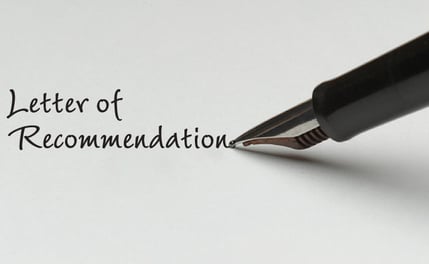This is a guest blog post from our friends at InGenius Prep.
Preparing Your Letters of Recommendation for Medical School Admission

Preparing Your Letters of Recommendation for Medical School Admissions
High quality letters of recommendation can make all the difference when you are applying to medical school. The best letters are the ones that can provide great details on your strengths and all of the reasons that you should be considered as a student. When you are getting ready to include these in your application, remember all of the following:
Recommendations from the right people matter.
However, the "right people" may not be the people you think. A person who is well-known and respected in their field and who has excellent credentials may seem like a good pick. However, if this person does not know you and your qualities as a worker or student, the letter they write will be generic and flat. Instead, go to the professors, administrators and supervisors who know you best. They can give the best details on your work ethic and your abilities.
During your undergrad studies, you should have made some connections with the people who taught your classes. Go back to the ones with whom you had good rapport.
Make sure you have the right number of letters from the right places.
Some schools require two, some will require three or more. In some cases, a paper letter in a pre-sealed envelope is considered the only appropriate delivery. Other schools will allow letters via email, but only from domains associated with the letter-writer's institution. By carefully reviewing the requirements, you can assure that the letters you have sent fulfill them.
Ask early.
No one is thrilled with last minute requests for favors. To make the task as easy and straight forward as possible, ask for recommendation letters as early as you can. This way, the letter can be written at your professors' convenience. They are more likely to take the time to write a shining recommendation if you give them as much time as they need for the task.
Pick the right venue.
You should also ask at the right place and time. Walking up to your teacher when they are running from class to class with their arms full of papers is the worst option possible; they will feel harried and may even forget that they said yes.
In many cases, an email is the best path. Your instructors read these when they are not busy and they will be more likely to note the request in their calendars. Use "Reference for [Your Name]" in the subject line so that they are easily able to go back to this email for reference later. In the body of your email, explain where you are applying, when the recommendation is due and any other needed information. If the recommendation needs to be mailed, provide an envelope and any needed forms.
Don't ask to read the letters.
If you are applying to a US school, you have a right under federal law to read your recommendation letters. However, some letter writers may feel that they cannot write candidly if they know you are going to read it. By keeping the letter confidential, they can speak more freely and authentically.
Send a thank you note.
As soon as the letter has been sent, you should send a note to thank the person who wrote it. The letters that are written to support you play a huge part in your chances of getting into the medical school that you want. Show appreciation for the effort.
Good recommendation letters can sometimes make the difference between an acceptance and a school that takes a pass. By treating this part of the application process with care, you can increase your chances of getting to go to the school that fits you best.
About the Author
Stacy Meyer is the VP of Enrollment at Trinity School of Medicine. A fully accredited Caribbean Medical School, Trinity is located in Saint Vincent and the Grenadines. Students graduating from Trinity are authorized to take part in the United States Medical Licensing Examinations. To learn more visit www.trinityschoolofmedicine.org.
